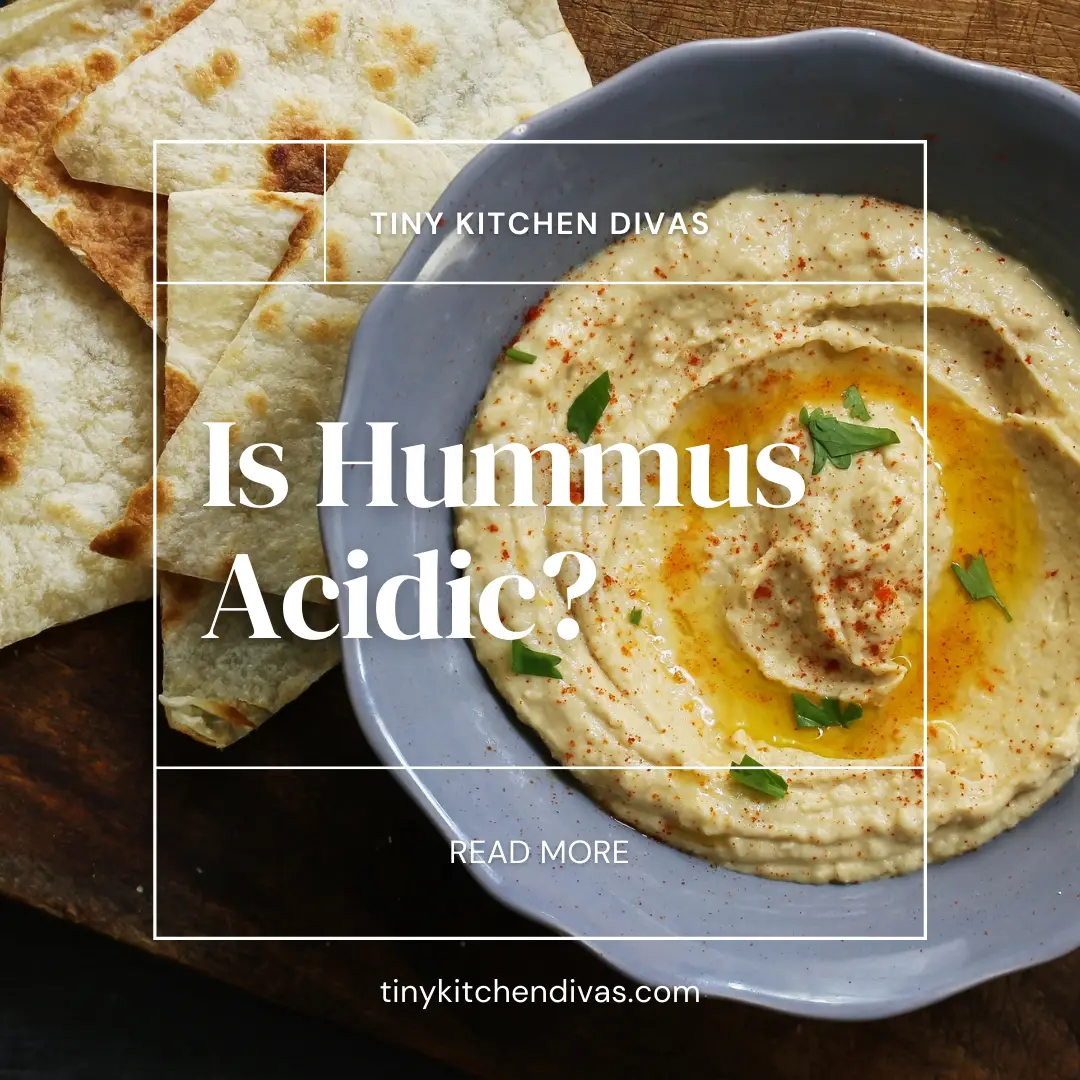According to a study titled “The Nutritional Value and Health Benefits of Chickpeas and Hummus” published in Nutrients, hummus is a dip made with chickpeas, spices like garlic, tahini, oil, and lemon. The presence of oil and tahini paste makes hummus a fat-rich food item. The reports by USDA suggest that two tablespoons of hummus contain approximately four percent of the total recommended dose of fats.
Is Hummus Acidic?
Hummus is acidic. Its pH value lies in the range of 4 to 6. Adding lime and spices to hummus makes it more acidic. Owing to its acidic nature, it can worsen the symptoms of acid reflux.
Acid reflux is a condition in which the stomach contents regurgitate into the esophagus leading to symptoms like a burning sensation in the chest (heartburn) and a sour taste in the mouth.
What are the Beneficial Effects of Hummus on Health?
Chickpeas, an essential ingredient of hummus, belong to the class of pulses. It is not only rich in proteins but contains a plethora of other essential nutrients like magnesium, calcium, folic acid, iron, phosphate, potassium, and zinc.
It has been reported that people who eat pulses usually weigh less, have blood glucose levels under control, lower blood pressure levels, and have low cholesterol levels. In addition, the chances of suffering from diabetes, heart disease, and specific cancer reduce significantly after including pulses in the diet. Therefore, eating hummus will also have similar benefits.
Additionally, homemade hummus has an advantage over packaged ones. Homemade hummus will have fewer preservatives and will be processed better. Adding olive oil to hummus makes it a healthy product that is good for the heart.
Nutritionally, 100 gms of hummus contains zero cholesterol and only 166 calories, with 14.3 grams of carbohydrates. But, it is also worth noting that there are 9.6 grams of fat and a healthy 7.9 grams of protein.
Does Hummus Increase the Chances of Acid Reflux?
The ingredients present in hummus can trigger acid reflux. Sesame seeds and chickpeas are the most common food items responsible for acid reflux. Although there has been enough evidence suggesting discontinuing hummus in acid reflux, few reports suggest that hummus can alleviate the symptoms of acid reflux by providing a protective coating for the stomach.
The fiber present in hummus can irritate the stomach lining and cause discomfort. The surest signs of gastrointestinal inflammation are bloating, acid reflux, and abdominal pain.
However, it is advisable to consult a doctor before including hummus in the diet, especially if one is suffering from the symptoms of acid reflux.
Making slight modifications to the hummus recipe, like replacing tahini with olive oil in hummus and using white beans instead of chickpeas, can help keep the symptoms of acid reflux in check. In addition, starting with small amounts of hummus and drinking plenty of water can protect you from symptoms of acid reflux.
How Can One Include Hummus in a Diet After Having Acid Reflux?
Although hummus is not suitable for acid reflux, creating modifications can make hummus a favorable food item for you.
First of all, while making hummus at home, try to add olive oil and water to convert it into a thin paste. If the hummus turns out to be more acidic than required, a bit of baking soda can be added to neutralize the acidity.
Next, try to add probiotics to hummus. Probiotics are live bacteria usually present in yogurt and other fermented food items. Probiotics not only improve gut health but can also reduce the symptoms of acid reflux. Lastly, increase the fiber content in the hummus.
Although there is no one-size-fits-all answer to whether people who suffer from acid reflux can make hummus, avoiding certain food items that trigger the reflux symptoms can help them get some relief from these symptoms. Food items that trigger acid reflux are spicy foods, citrus fruits, tomato sauce, and caffeine.
Can Hummus Protect You From GERD?
Hummus is a preferred food choice amongst many people, including those who suffer from GERD. A few reasons attributed to its use are:-
- It is a rich source of protein and fiber but is low in calories and fats. Thus, it can prevent both diarrhea and constipation.
- Hummus can keep blood sugar levels under control. It can be used for keeping the weight under check.
- The critical ingredient of hummus is tahini which is a probiotic. It balances the digestive system and keeps the symptoms of acid reflux under check.
Conclusion
Hummus is acidic since it is made from chickpeas and the pH of chickpeas is in the acidic range of 4 to 6, especially after digestion. There is still no clarity on whether hummus is good or bad for acid reflux. Some people tolerate it quite well, while others complain of worsening symptoms.
Hummus is healthy food in general, low in calories, fat, and cholesterol, and a rich source of protein and fiber. However, it is advisable to use hummus in moderation. If someone suffers from problems related to acid reflux, a doctor must be consulted before adding hummus to the diet.
References
Calderone, J. (2018, May 13). Is hummus good for you? Consumer Reports. https://www.consumerreports.org/nutrition-healthy-eating/is-hummus-good-for-you/
Doerfler, B., Bryce, P., Hirano, I., & Gonsalves, N. (2015). A practical approach to implementing dietary therapy in adults with eosinophilic esophagitis: the Chicago experience: Dietary therapy in adult EoE. Diseases of the Esophagus, 28(1), 42–58. https://doi.org/10.1111/dote.12175
FoodData central. (n.d.). Usda.Gov. Retrieved May 25, 2022, from https://fdc.nal.usda.gov/fdc-app.html#/food-details/447071/nutrients.
Wallace, T. C., Murray, R., & Zelman, K. M. (2016). The nutritional value and health benefits of chickpeas and hummus. Nutrients, 8(12), 766. https://doi.org/10.3390/nu8120766


